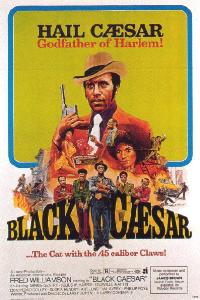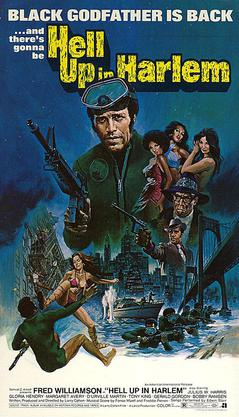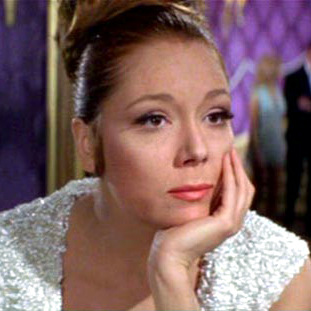
Diamonds Are Forever is a 1971 spy film and the seventh film in the James Bond series produced by Eon Productions. It is the sixth and final Eon film to star Sean Connery, who returned to the role as the fictional MI6 agent James Bond, having declined to reprise the role in On Her Majesty's Secret Service (1969).

Tomorrow Never Dies is a 1997 spy film, the eighteenth in the James Bond series produced by Eon Productions and the second to star Pierce Brosnan as fictional MI6 agent James Bond. Directed by Roger Spottiswoode from a screenplay by Bruce Feirstein, it follows Bond as he attempts to prevent Elliot Carver, a power-mad media mogul, from engineering world events to initiate World War III.

Lois Ruth Maxwell was a Canadian actress. She was best known for portraying Miss Moneypenny in the first 14 Eon-produced James Bond films (1962–85), from Dr. No in 1962 to A View to a Kill in 1985.

Julius W. Harris was an American actor who appeared in more than 70 movies and numerous television series in a career that spanned four decades. Harris is best known for his roles in 1970s films such as Live and Let Die and the blaxploitation films Super Fly, Black Caesar and Hell Up in Harlem.

Black Belt Jones is a 1974 American blaxploitation martial arts film directed by Robert Clouse and starring Jim Kelly and Gloria Hendry. The film is a spiritual successor to Clouse's prior film Enter the Dragon, in which Kelly had a supporting role. Here, Kelly features in his first starring role as the eponymous character, a local hero who fights the Mafia and a local drug dealer threatening his friend's dojo.

Cleopatra Jones is a 1973 American blaxploitation film directed by Jack Starrett. Tamara Dobson stars as an undercover government agent who uses the day job of supermodel as her cover and an excuse to travel to exotic places. Bernie Casey, Shelley Winters and Antonio Fargas also feature. The film has been described as being primarily an action film, but also partially a comedy with a spoof tone.

The Payback is the 37th studio album by American musician James Brown. The album was released in December 1973, by Polydor Records. It was originally scheduled to become the soundtrack for the blaxploitation film Hell Up in Harlem, but was rejected by the film's producers, who dismissed it as "the same old James Brown stuff." A widely repeated story—including by Brown himself—that director Larry Cohen rejected the music as "not funky enough" is denied by Cohen. On the DVD commentary track for Black Caesar, Cohen states that executives at American International Pictures were already unhappy with Brown for delivering songs much longer than expected on Black Caesar and Slaughter's Big Rip-Off and opted for a deal with Motown Records instead. Cohen said the absence of Brown's music from Harlem still "breaks [his] heart."

Black Caesar is a 1973 American blaxploitation crime drama film written and directed by Larry Cohen and starring Fred Williamson, Gloria Hendry and Julius Harris. It features a musical score by James Brown, his first experience with writing music for film. A sequel titled Hell Up in Harlem was released in late 1973.

Hell Up in Harlem is a 1973 blaxploitation American neo-noir film, starring Fred Williamson and Gloria Hendry. Written and directed by Larry Cohen, it is a sequel to the film Black Caesar.

The Man with the Golden Gun is a 1974 spy film and the ninth in the James Bond series produced by Eon Productions, and the second to star Roger Moore as the fictional MI6 agent James Bond. A loose adaptation of Ian Fleming's posthumously published 1965 novel of the same name, the film has Bond sent after the Solex Agitator, a breakthrough technological solution to contemporary energy shortages, while in a game of cat and mouse facing the assassin Francisco Scaramanga, the "Man with the Golden Gun". The action culminates in a duel between them that settles the fate of the Solex.

Live and Let Die is a 1973 spy film, the eighth film in the James Bond series produced by Eon Productions, and the first to star Roger Moore as the fictional MI6 agent James Bond. It was directed by Guy Hamilton and produced by Albert R. Broccoli and Harry Saltzman, while Tom Mankiewicz wrote the script.

Live and Let Die is the soundtrack to the eighth James Bond film of the same name, scored by George Martin. The title song was written by Paul and Linda McCartney and performed by Paul McCartney and Wings. It was the first Bond film score to not involve John Barry.

Norma C. Donaldson was an American actress and singer. Perhaps she is best known for her roles as Miss Adelaide in the 1976 revival of Guys and Dolls; Lillie Belle Barber on the CBS television soap opera The Young and the Restless, in which she played from 1990 until she died in 1994.

Teresa "Tracy" Bond is a fictional character and the main Bond girl in the 1963 James Bond novel On Her Majesty's Secret Service, where she becomes the first Bond girl to marry 007. In the novel’s 1969 film adaptation, Tracy is played by the actress Diana Rigg.

Tiffany Case is a fictional character in the 1956 James Bond novel Diamonds Are Forever and its 1971 film adaptation. A "Bond girl", she was portrayed by Jill St. John in the film. In the novel, the story of her name is that when she was born, her father Case was so embittered she was not a boy that he gave her mother a thousand dollars and a powder case from Tiffany's and walked out. In the film it is stated that she was named after her accidental preterm birthplace, Tiffany & Co., where her parents were going through a choice of wedding bands, to which Bond dryly jokes that she was lucky that it had not happened at Van Cleef & Arpels.

Blaxploitation is an ethnic subgenre of the exploitation film that emerged in the United States during the early 1970s, when the combined momentum of the civil rights movement, the black power movement, and the Black Panthers spurred African-American artists to reclaim the power of depiction of their ethnicity, and institutions like UCLA to provide financial assistance for African-American students to study filmmaking. This combined with Hollywood adopting a less restrictive rating system in 1968. The term, a portmanteau of the words "black" and "exploitation", was coined in August 1972 by Junius Griffin, the president of the Beverly Hills–Hollywood NAACP branch. He claimed the genre was "proliferating offenses" to the black community in its perpetuation of stereotypes often involved in crime. After the race films of the 1940s and 1960s, the genre emerged as one of the first in which black characters and communities were protagonists, rather than sidekicks, supportive characters, or victims of brutality. The genre's inception coincides with the rethinking of race relations in the 1970s.
Trina Parks is an American actress, vocalist, choreographer, principal dancer and dance instructor. Parks is best known for portraying Thumper in the 1971 James Bond film Diamonds Are Forever.
The following outline is provided as an overview of and topical guide to James Bond:















